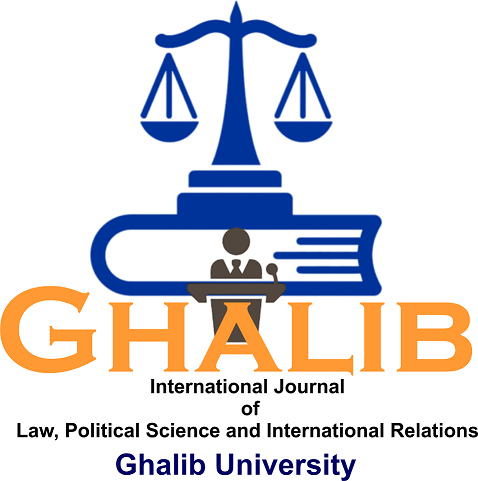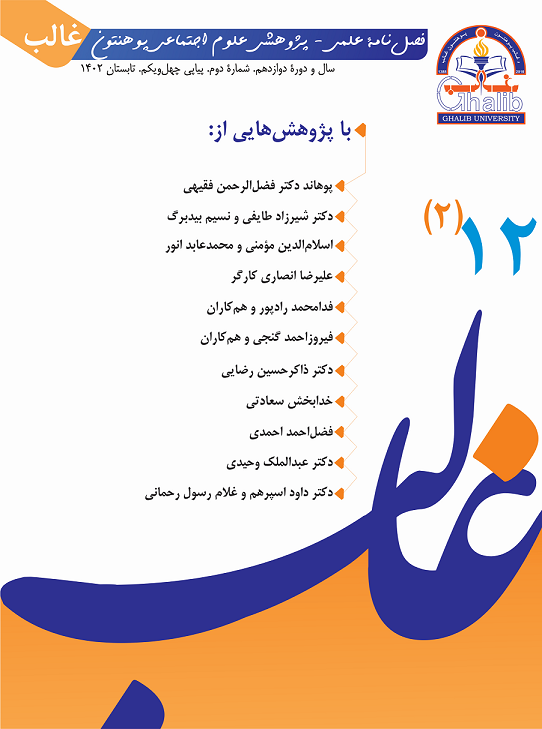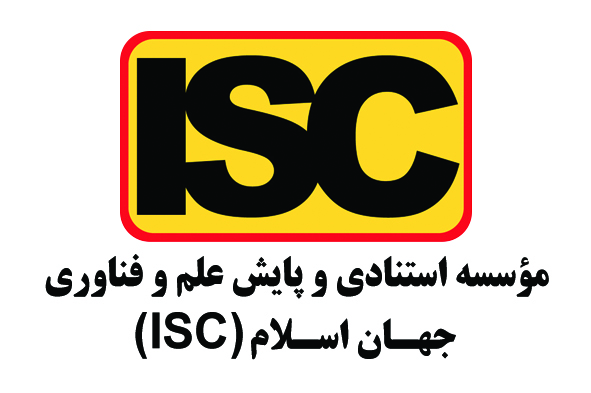بررسی رابطۀ کیفیت زندهگیِ کاری و عملکرد شغلی با نقش تعدیلگر نشاط سازمانی در پوهنتونهای غالبِ هرات و کابل
DOI:
https://doi.org/10.58342/ghalibqj.V.12.I2.3واژهگانِ کلیدی:
کیفیت زندهگیِ کاری، عملکرد شغلی، نشاط سازمانی، پوهنتونهای غالبِ هرات و کابلچکیده
کیفیت زندهگیِ کاری، تأثیر مهمی روی عملکرد شغلی کارکنان دارد. توجه لازم در این بخش توسط سازمانها، عملکرد شغلی کارکنان را بهبود میبخشد و تعالی سازمان را به دنبال دارد؛ همچنان نشاط سازمانی در بهوجودآوردن کیفیت زندهگی کاریِ مطلوب در سازمان نقش اساسی دارد و باعث بهبود عملکرد شغلی میگردد. این تحقیق با هدف یافتنِ پاسخ به این پرسش که: آیا نشاط سازمانی در دانشگاههای غالبِ هرات و کابل وجود دارد یا خیر؛ و این مسأله روی کیفیت زندهگی کاری و عملکرد کارکنانِ این دو دانشگاه، چهگونه است؟ شکل گرفته است. تحقیق ازنظر هدف کاربردی و ازنظر ماهیت و روش، از نوع توصیفی- همبستهگی بوده است. جامعة آماری این تحقیق را کارمندان دانشگاههای غالبِ هرات و کابل، که تعداد آنها ۳۵۰ تن بودند، با استفاده از روش نمونهگیری تصادفیِ ساده و بر اساس جدول مورگان، ۱۸۳ نفر نمونه تعیین شدند. بهمنظور گردآوری اطلاعات از دو روش کتابخانهیی و میدانی استفاده شد. ابزار تحقیق شامل پرسشنامة عملکرد شغلی پاترسون (۱۹۹۲)، پرسشنامۀ نشاط سازمانی کرولف (۲۰۰۷) و پرسشنامۀ کیفیت زندهگیِ کاری استون (۱۹۹۸) بود. نتایج نشان داد که نشاط سازمانی موجود در دانشگاههای غالبِ هرات و کابل، کیفیت زندهگی کاری و عملکرد شغلی کارکنانِ این دو نهاد را افزایش داده است.
سرچشمهها/ منابع
اردلان، محمدرضا؛ عزیزی، احمد و جواد ساکی. (1400). «تأثیر کیفیت زندهگی کاری بر اثربخشی تیمی با نقش میانجی خشنودی شغلی». ایران: فصلنامۀ اندیشههای نوین تربیتی. 17(1). 207-22. <https://doi.org/10.22051/jontoe.2021.20105.2194>.
الماسی، حسن؛ لطفالهی، محمد و مریم زارعی یزدانی. (1390). «کیفیت زندهگی کاری و عملکرد کارکنان». ایران: نشریۀ مدیریت کسبوکار. 2(9). 69-86. <https://sid.ir/paper/237802/fa>.
امیری، علیاحمد و همکاران. (1402). «تصور هراتنشینان از پوهنتون غالب (جامعۀ هدف: خبرهگان و مردم عوام)». افغانستان: فصلنامۀ علمی - پژوهشی غالب. 12(1). ۶۷-۸۶. <https://doi.org/10.58342/ghalibqj.V40.I1.4>.
انور، محمدعابد؛ محق، نصیراحمد. (1402). «استراتیژیهای بقا و پایداری سازمانها در محیطهای فرّار». افغانستان: فصلنامۀ علمی-پژوهشی غالب. 12(1). ۳۳-۴۶. <https://doi.org/10.58342/ghalibqj.V.40.I1.2>.
باقری، مسلم؛ جاجرمیزاده، محسن و منصوره بنافی. (1396). «بررسی نقش میانجیگری نشاط سازمانی در رابطۀ معنویت سازمانی و تعهد سازمانی (مورد مطالعه: دانشگاه شیراز)». ایران: نشریة فرهنگ در دانشگاه اسلامی. 7(22). 3-18. https://sid.ir/paper/236917/fa>.
پویا، جلیل احمد؛ انور، محمد عابد و علیاحمد امیری. (1400). «بررسی خدمات پوهنتونها و مؤسسات تحصیلات عالی خصوصی به محصلان: مطالعۀ موردی: پوهنتونهای خصوصی ولایت هرات». افغانستان: فصلنامۀ علمی-پژوهشی غالب. 10(34-35). 129-154. <https://doi.org/10.58342/.v10i34-35.19>.
جووری، بهنوش و همکاران. (1399). «تدوین و اولویتبندی استراتیژیهای نشاط آفرینی سازمانی برای زنان دانشگاهی (با عنایت بر نقشهای چندگانۀ زنان)». ایران: فصلنامۀ مطالعات زن و خانواده. 8(2). 37-78. .
دهقانی تفتی، عارفه و همکاران. (1397). «بررسی ارتباط استرس شغلی با عملکرد شغلی در کارکنان ستادی دانشگاه علوم پزشکی شهید صدوقی یزد در سال ۱۳۹۷». ایران: دوماهنامۀ علمی – پژوهشی طلوع بهداشت. ۱۹ (۲). ۷۲-۸۴. <https://tbj.ssu.ac.ir/article-1-2975-fa.html>.
زوار، تقی. شبان بسیم، فرناز و جعفر مهدیزاده. (1400). «پیشبینی عملکرد شغلی معلمان بر اساس توانمندسازی روانشناختی و سبک رهبری مدیران». ایران: فصلنامة اندیشههای نوین تربیتی. 17(1). 153-173.
شیرزاد کبریا، بهارک؛ غفاری ملجج، محمد. (1394). «بررسی رابطه بین کیفیت زندهگی کاری و تعهد سازمانی کارکنان سازمان بنادر و دریانوردی جمهوری اسلامی ایران». ایران: فصلنامۀ صنعت حمل و نقل دریایی. 1(3). 63-72. <http://jmti.pmo.ir/article_58603.html>.
قصری، محمد؛ عبدالعلیپور، قادر و عباس قبادی. (1390). «نقش کیفیت زندهگی کاری در تعهد سازمانی کارکنان دانشگاه علوم انتظامی». ایران: نشریۀ پژوهشهای مدیریت انتظامی (مطالعات مدیریت انتظامی). 6(2)، 177-193. https://sid.ir/paper/135341/fa>.
نیازآذری، مرضیه. (1399). «رابطه بین رهبری دانش و سکوت سازمانی با نقش میانجی تیمپذیری مدیران مدارس». ایران: نشریۀ مدیریت مدرسه. 8(4). 341-361. https://sid.ir/paper/958146/fa>.
Ghalib Universities. Available On: <https://ghalib.edu.af/ckeditor/kcfinder/upload/files/introduction%20university.pdf. [03/25/2023]>.
Koonmee, K. Singhapakdi, A., Virakul, B., & Lee, D.-J. (2010). “Ethics institutionalization, quality of work life, and employee job-related outcomes: A survey of human resource managers in Thailand”. Journal of Business Research, 63(1), 20–26. <https://doi.org/10.1016/j.jbusres.2009.01.006>.
Layer, J. K., Karwowski, W., & Furr, A. (2009). “The effect of cognitive demands and perceived quality of work life on human performance in manufacturing environments”. International Journal of Industrial Ergonomics, 39(2), 413–421. <https://doi.org/10.1016/j.ergon.2008.10.015>.
Lee, D.-J., Singhapakdi, A., & Sirgy, M. J. (2008). “Further validation of a need-based quality-of-work-life (QWL) measure: Evidence from marketing practitioners”. Applied Research in Quality of Life, 2(4), 273–287. <https://doi.org/10.1007/s11482-008-9042-x>.
Mohyeldin Tahir Suliman, A. (2007). “Links between justice, satisfaction, and performance in the workplace: A survey in the UAE and Arabic context”. Journal of Management Development, 26(4), 294-311. <https://doi.org/10.1108/02621710710740075>.
Shareef, R. (1990). “QWL programs facilitate change”. Personnel journal. V. 112. Pp: 24-34. <https://doi.org/10.1016/j.sbspro.2014.01.1136>.
References
Almasi, Hassan; Lotfolahi, Mohammad and Maryam Zarei Yazdani. (2011). “Quality of work life and employee performance”. Iran: Business Management Journal. 2(9). 69-86. <https://sid.ir/paper/237802/fa>. (Persian)
Amiri, Ali Ahmad and colleagues. (2023). “Herat residents' perception of Ghalib University (target community: experts and common people”. Afghanistan: Ghalib scientific-research quarterly. 12(1). 67-86. <https://doi.org/10.58342/ghalibqj.V40.I1.4>. (Persian)
Anwar, Mohammad Abed; Mohagh, Nasir Ahmad. (2023). “Survival and sustainability strategies of organizations in volatile environments”. Afghanistan: Ghalib scientific-research quarterly. 12(1). 33-46. <https://doi.org/10.58342/ghalibqj.V.40.I1.2>. (Persian)
Ardalan, Mohammad Reza; Azizi, Ahmed and Javad Saki. (2021). “The effect of the quality of work life on team effectiveness with the mediating role of job satisfaction”. Iran: New Educational Thoughts Quarterly. 17(1). 22-207. <https://doi.org/10.22051/jontoe.2021.20105.2194>. (Persian)
Bagheri, Muslim; Jajermizadeh, Mohsen and Mansour Benafi. (2016). “Investigating the mediating role of organizational vitality in the relationship between organizational spirituality and organizational commitment (case study: Shiraz University) ”. Iran: Farhang Publishing House in Islamic University. 7(22). 3-18. https://sid.ir/paper/236917/fa>. (Persian)
Dehghani Tafti, Arefe et al. (2017). “Investigating the relationship between job stress and job performance in the staff of Shahid Sadoughi University of Medical Sciences in Yazd in 2017”. Iran: bimonthly scientific-research journal Tolo Health. 19(2). 72-84. <https://tbj.ssu.ac.ir/article-1-2975-fa.html>. (Persian)
Ghalib Universities. Available On: <https://ghalib.edu.af/ckeditor/kcfinder/upload/files/introduction%20university.pdf. [03/25/2023]>.
Joori, Behnoosh et al. (2019). “Compilation and prioritization of organizational revitalization strategies for university women (considering the multiple roles of women) ”. Iran: Women and Family Studies Quarterly. 8(2). 37-78. . (Persian)
Koonmee, K., Singhapakdi, A., Virakul, B., & Lee, D.-J. (2010). “Ethics institutionalization, quality of work life, and employee job-related outcomes: A survey of human resource managers in Thailand”. Journal of Business Research, 63(1), 20–26. <https://doi.org/10.1016/j.jbusres.2009.01.006>.
Layer, J. K., Karwowski, W., & Furr, A. (2009). “The effect of cognitive demands and perceived quality of work life on human performance in manufacturing environments”. International Journal of Industrial Ergonomics, 39(2), 413–421. <https://doi.org/10.1016/j.ergon.2008.10.015>.
Lee, D.-J., Singhapakdi, A., & Sirgy, M. J. (2008). “Further validation of a need-based quality-of-work-life (QWL) measure: Evidence from marketing practitioners”. Applied Research in Quality of Life, 2(4), 273–287. <https://doi.org/10.1007/s11482-008-9042-x>.
Mohyeldin Tahir Suliman, A. (2007). “Links between justice, satisfaction, and performance in the workplace: A survey in the UAE and Arabic context”. Journal of Management Development, 26(4), 294-311. <https://doi.org/10.1108/02621710710740075>.
Niazaziri, Marzieh. (2019). “The relationship between knowledge leadership and organizational silence with the mediating role of school principals' team acceptance”. Iran: School Management Journal. 8(4). 341-361. https://sid.ir/paper/958146/fa>. (Persian)
Poua, Jalil Ahmad, Anwar, Mohammad Abed and Amiri Ali Ahmad (2021). “Evaluation of the services of universities and private higher education institutions to students: case study: special universities of Herat province”. Ghalib scientific-research Quarterly, 10(34-35), 129-154. <https://doi.org/10.58342/.v10i34-35.19>. (Persian)
Qasri, Mohammad; Abdul Alipour, Qadir and Abbas Qabadi. (2011). “The role of the quality of work life in the organizational commitment of the employees of the University of Police Sciences”. Iran: Journal of Law Enforcement Management Studies (Law Enforcement Management Studies). 6(2), 177-193. https://sid.ir/paper/135341/fa>. (Persian)
Shareef, R. (1990). “QWL programs facilitate change”. Personnel journal. V. 112. Pp: 24-34. <https://doi.org/10.1016/j.sbspro.2014.01.1136>.
Shirzad Kobriya, Bahark; Ghaffari Maljaj, Mohammad. (2014). “Examination of the relationship between the quality of work life and the organizational commitment of employees of the Ports and Maritime Organization of the Islamic Republic of Iran”. Iran: Sea Transportation Industry Quarterly. 1(3). 63-72. <http://jmti.pmo.ir/article_58603.html>. (Persian)
Zowar, Taghi. Shaban Basim, Farnaz and Jafar Mehdizadeh. (2021). “Prediction of teachers' job performance based on psychological empowerment and managers' leadership style”. Iran: New Educational Thoughts Quarterly. 17(1). 153-173. . (Persian)
چاپ شده
ارجاع به مقاله
شماره
نوع مقاله
مجوز
حق نشر 2023 فصلنامه علمی -پژوهشی غالب

این پروژه تحت مجوز بین المللی Creative Commons Attribution 4.0 می باشد.













